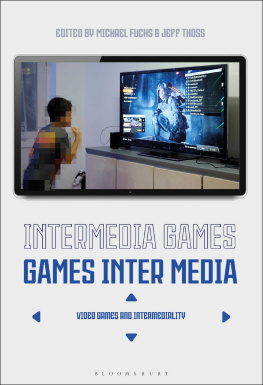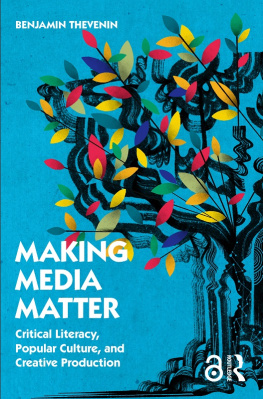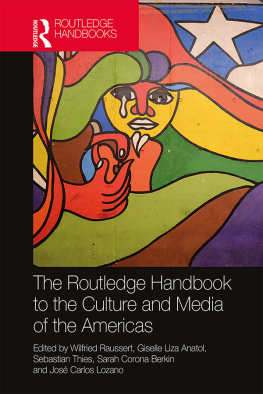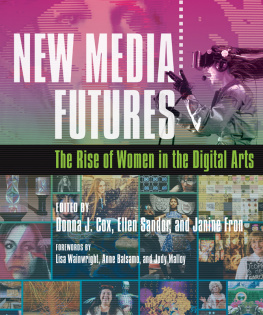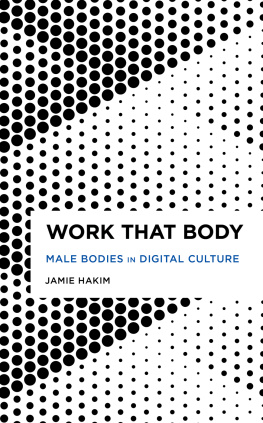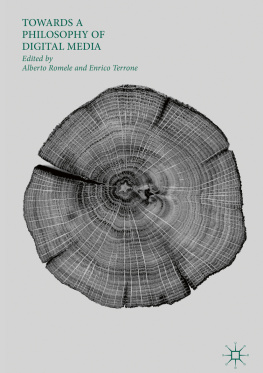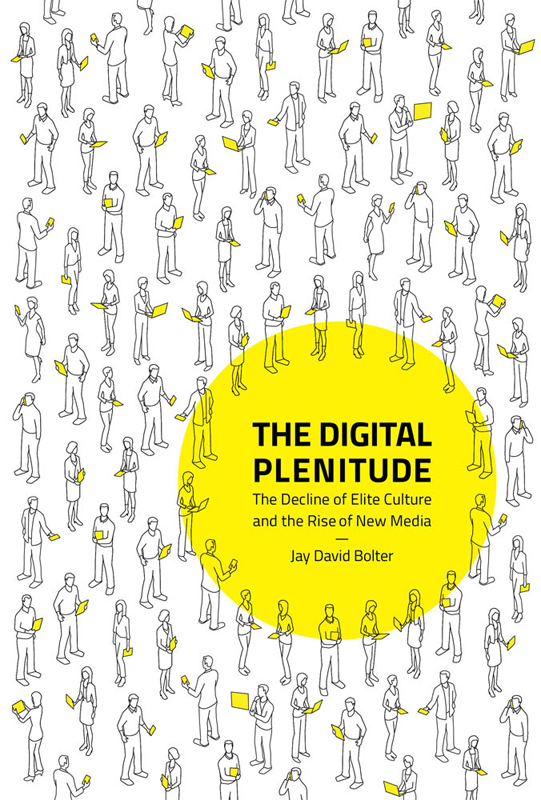Contents
Guide
Pagebreaks of the print version
The Digital Plenitude
The Decline of Elite Culture and the Rise of Digital Media
Jay David Bolter
The MIT Press
Cambridge, Massachusetts
London, England
2019 Massachusetts Institute of Technology
All rights reserved. No part of this book may be reproduced in any form by any electronic or mechanical means (including photocopying, recording, or information storage and retrieval) without permission in writing from the publisher.
This book was set in Stone Serif by Westchester Publishing Services. Printed and bound in the United States of America.
Library of Congress Cataloging-in-Publication Data is available.
ISBN: 978-0-262-03973-4
Contents
List of Illustrations
Photograph of a New York City intersection, Seventh Avenue and Forty-Second Street, early 1960s. adoc-photos/Corbis Historical/Getty Images.
Google Street View image of New York City, Seventh Avenue and Forty-Second Street, November 2017. Google and the Google logo are registered trademarks of Google Inc., used with permission.
Visualizing the plenitude of the Internet: Barrett Lyon, Opte Project, 2003.
Saul Steinberg, View of the World from Ninth Avenue. The Saul Steinberg Foundation/Artists Rights Society (ARS), New York.
Andres Serranos controversial Immersion (Piss Christ) (1987), courtesy of the artist.
John Lennon and Yoko Ono, Bed-in for Peace, Amsterdam Hilton, 1969. Image courtesy of the National Archive of the Netherlands. CC BY-SA 3.0 NL.
Some dichotomies in contemporary media culture.
Giant Sparrow, What Remains of Edith Finch (2015), reprinted with permission of Annapurna Interactive.
YouTubes interface encourages flow.
Flow and catharsis.
Cory Arcangel, Super Mario Clouds (2002ongoing). Handmade hacked Super Mario Bros. Cartridge, Nintendo NES video game system. Screenshot. Cory Arcangel. Image courtesy of Cory Arcangel.
JODI, Untitled Game, screenshot. Reprinted with permission.
Three aesthetics: Flow, catharsis, and reflection.
Mashup DJ Girl Talk Deconstructs Samples from Feed The Animals: Angela Watercutter/Wired Conde Nast.
Chaplin, starring in the film Modern Times (1936): The Tramp is devoured by the machine. Photo Roy Export S.A.S.
Oskar Schlemmers Triadic Ballet (1922). Photographer: Ernst Schneider. Ullstein Bild Dtl/Ullstein Bild/Getty Images.
Sid Meier, Civilization IV: history as simulation. Take2 Interactive.
Gonzalo Frasca and Sofia Battegazzore, September 12, a video game with a political message. Reprinted by permission.
The confused and illegible design of a typical Facebook page.
.
The 4Chan /b/ board: a site for anonymous self-expression.
Dichotomies of our media culture.
Preface
November 8, 2016, was a seismic event for the cultural elite in the United States. How could the country have elected as president a man who possessed no experience and not a single intellectual or moral qualification for the office? A man who embodied almost the precise opposite of every such qualification? I write cultural elite intentionally. If you belong to any of the groups constantly vilified by Trump and his followers (journalists, scientists, political activists, academics and intellectuals of all kinds), you have been defined by this election as a member of a cultural elite, whether you like it or not. In the past two decades, although right-wing politicians had been getting mileage out of attacks on the cultural elite, their voter base did not understand the media bias of the press and the political correctness of academics as threats to their way of life. Now they do. As FiveThirtyEight data journalist Nate Silver has noted, the single most important characteristic that determined the votes for or against Trump in the election was the voters level of education. Even relatively wealthy people with less education went for Trump, just as relatively less affluent voters with higher education voted against him. The classic Trump voterthe hillbilly of J. D. Vances Hillbilly Elegy (Vance 2016)feels acutely the difference between those with higher education and those without. Trumps extraordinary success with this population of voters shows that, unlike their European counterparts, what the American working class resents above all is not the economic divide between itself and the wealthiest 1 percent (the division that the left in the United States and in Europe assumes should be the natural marker of political preference). Instead, the American (white) working class both sees and resents the chasm in outlook and status that separates it from the educated eliteabove all, anyone in the media or the academic world, anyone who works with words as their profession or vocation.
Donald Trump has managed to fashion himself as a billionaire with a working-class persona, and that is why his followers can identify with him. Clinging to the American myth of mobility, they can imagine themselves rich. They cannot imagine themselves with an elite education, because, as they rightly understand, that education would rob them of their class identity. They can envision themselves in Trump Tower much more easily than in the Ivory Tower. Because of Trump, the idea of the cultural elite has emerged as a political issue for the United States, rivaling or even surpassing the issue of economic inequality.
How did we get here? How has our media culture developed in the past half century to bring us to this pivotal moment? I say media culture because our political culture is a media culture. We dont even think of it any other waywhen we say politics, we think of television ads, cable news coverage, email lists, and now especially tweets. Media constitute the political for us in the United States today. Just as there is now no universally recognized distinction between entertainment and art, so there is no firm distinction between entertainment and politics. Obviously the social and economic developments that led us to Donald Trumps presidency are numerous. In hindsight the Trump era could only have been possible because of a perfect storm of economic dislocations, social realignments, and changes in cultural assumptions. In this book I will be focusing on cultural assumptions specifically in the realm of the arts, entertainment, and to some extent the humanitieson the rise of what used to be called popular culture and on the relative decline of elite culture.
What has happened to our media culture is the breakdown of any broadly shared conviction in hierarchy. In 1950 we still accepted the notion that there was a significant difference between art and popular entertainment. We believed that novelists, poets, artists, composers, literary critics, art critics, and historians had access to a special cultural sphere, to Culture with a capital C; we believed that their novels, poems, essays, paintings, and music simply mattered in a way that romance novels, radio and television shows, and comic books did not. This shared cultural understanding came under assault in the following decades. The term popular culture gradually lost its negative connotation, while the term elite became pejorative. But while the hierarchies in art, language, and learning have broken down, they have not entirely disappeared. The resentment that so many in the American heartland feel for their more educated fellow citizens on the coasts shows that there remains some suspicion that perhaps elite culture


